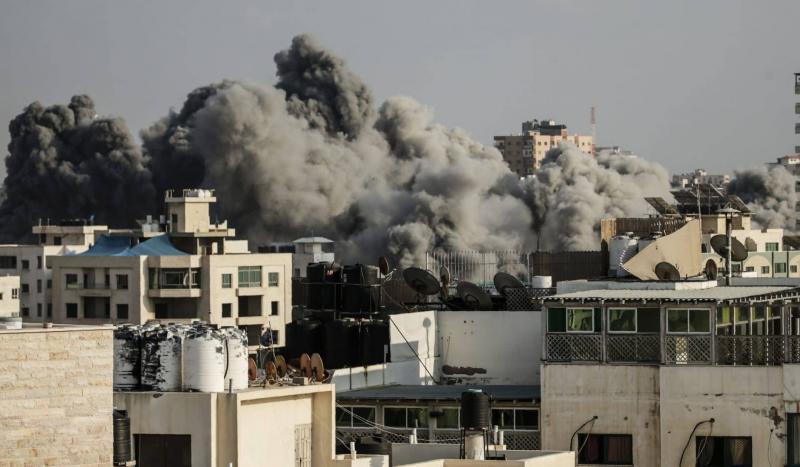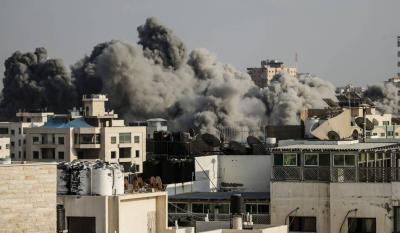After four months of war in Gaza, the urgent need for healthcare among children is evident in the long lines of anxious parents waiting outside the tent of pediatrician Rajaa Akasha, who is also a displaced Palestinian, like the children and their parents. Akasha works all day in a tent he set up as a free medical center for children in the area where he lives in Rafah, doing everything he can to provide care to an unknown number of sick and injured children living in a war that has left almost all residents of the Gaza Strip homeless.
Akasha himself is homeless after fleeing his home in Beit Hanoun, the first place targeted by the Israeli ground assault. Like most residents of Gaza, he ended up in Rafah on the border with Egypt. Akasha stated, "Due to the war and the collapse of the healthcare system and the lack of hospitals and any health centers in the camp where I live, I see every day 20 to 30 sick children... I decided to open this medical tent to treat children and provide them with free service, and all this was primarily because I truly love children, and it came from within me (inside) that whenever I see a child, I must provide treatment and try to help him."
The aerial and ground attacks launched by the Israeli army on Gaza have resulted in the deaths of more than 28,000 Palestinians, according to health authorities in the Hamas-run sector, causing massive destruction and a humanitarian disaster. While Akasha examined a screaming, in-pain child, a long line of parents had come with their sick children. Israel has indicated plans to expand its military campaign to include Rafah, where more than a million displaced individuals are crowded, prompting relief agencies to warn that an attack on the city could lead to a total catastrophe.
Disease is widespread in Gaza, with Akasha wearing a blue doctor's coat and a stethoscope around his neck, practicing with the few tools he acquired through donations. He mentioned, "Regarding the diseases I see, they are alarmingly prevalent among children, especially gastrointestinal infections, viral infections, and respiratory infections due to the cold. Some people here bring me children who are not dressed properly... only wearing a single piece... people coming out of their homes without wearing anything. (There is) a widespread outbreak of hepatitis... This infection has become alarmingly prevalent among children. According to the Palestinian Ministry of Health, hepatitis has become an epidemic because 70 to 80 percent of children under 13 years old have been infected. All this is due to the lack of cleanliness, the absence of hygiene, drinking saline water, and the unavailability of healthy food due to the camps leading to the spread of infections."
Akasha's challenge is not only that he works from a tent with very few medical devices, but he also struggles to provide medication. He added, "I suffer a lot from the shortage of medicines because, in general, there are no medicines entering the Gaza Strip. I am struggling with a lack of medications; I work in a hospital, there is no paracetamol when a child comes in with a temperature of 40 degrees, and there is no paracetamol to give to the child... I try to source medications personally; I go around all the pharmacies and ask... to be able to provide those medicines."
One father named Ahmad Al-Amoudi, carrying his crying son, said, "What brought me here is that my son is very sick, suffering from fever and diarrhea due to the very difficult conditions we are living through because of the war, the lack of cleanliness, the absence of food and clean drinking water, and the lack of clothing at night... the lack of hygiene and comfort for children... due to the war, there is no treatment or places to get treated, and even where we can be treated, we wait for hours in line (for our turn), and not all medications are available; the available medications are just pain relievers and fever reducers."
Most hospitals in Gaza have stopped functioning, and some have been damaged due to Israeli bombardment. The remaining hospitals are operating under increasing pressure as Israeli forces advance. Israel claims that Hamas uses these facilities as cover for military purposes, a claim denied by the movement.




